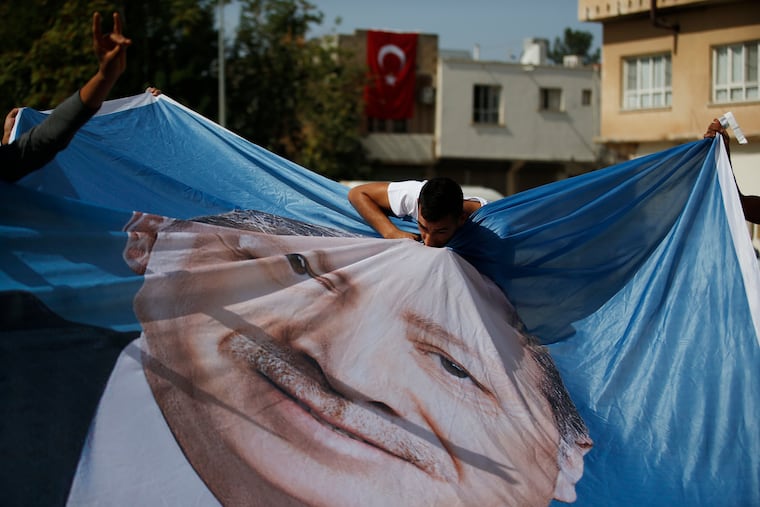I spent over five years working in the Middle East. Abandoning Kurdish allies in Syria is disheartening. | Opinion
U.S. must exercise moral authority by demanding that the Kurds receive their just due: protection from oppression and a state of their own.

“Never abandon your shipmate.” Those four simple words formed the first and most important lesson I learned during my grueling first year at the U.S. Naval Academy. I was a plebe then, and my classmates and I relied on each other for support against the upperclassmen who sought to discipline us at every available opportunity. There was safety in numbers, and we knew that leaving a fellow plebe alone to the wolves would be a supreme act of betrayal. This ethos to stand by those who served with me formed the foundation of my ethical code. For this reason, I find the U.S. abandonment of our Kurdish allies in Syria so deeply disheartening.
I deployed to the Middle East as a mission planner for a special forces unit between 2014 and 2015, when ISIS was rampaging through Iraq and Syria. The Iraqi Army that the U.S. spent a fortune training had retreated, and there was little keeping Iraq from collapsing under the terrorist onslaught. However, I saw the Kurds step up to the plate and fight intensely against ISIS while other nations in the region sat by and watched. The Kurdish People’s Protection Units (YPG), along with Kurdish Peshmerga fighters, were instrumental in defeating ISIS during the siege of Kobani, a six-month battle that turned the tide of the conflict. Furthermore, the anti-ISIS coalition utilized Erbil, the capital city of Iraqi Kurdistan, as a critical base in its victorious offensive against the terrorist group, which cost approximately 11,000 Kurdish lives.
Not only were the Kurds our most stalwart allies, but if it were not for them, ISIS would still be rampaging through the Middle East. How have we repaid them? We have left the Kurds who fought beside us in Syria to the mercy of Turkey, placing the lives of those that fought beside us in grave danger. In effect, we have left them to the wolves.
Beyond the ethical concerns of abandoning our allies, we must ask ourselves how this action will impact our credibility. Who will stand and fight with us if ISIS rises again? I spent over five years serving and working in the Middle East, where people privately expressed their belief that the U.S. was an unreliable, self-serving partner. This attitude forms the basis for much of the anti-American resentment in the region. Now, the U.S. can change this perception by standing up for what is right.
Some 100 years ago, at the end of World War I, the Allies promised the Kurds an independent state as a reward for their support in the war against the Central Powers. However, this promise was revoked three years later in the Treaty of Lausanne, which set the boundaries of the modern Middle East. It made no provision for Kurdistan and left the Kurds as ethnic minorities in Syria, Iraq, Iran, and Turkey. The ensuing years witnessed their oppression and genocide at the hands of numerous regimes. Now, the U.S. can right this historic wrong by protecting our Kurdish allies from aggression, and by demanding that they receive the independent state that they have earned.
The U.S. and its Kurdish allies played the most instrumental role in the defeat of ISIS, something for which all Middle Eastern nations should be grateful. Now, the U.S. must exercise the moral authority it gained from this victory by demanding that the Kurds receive their just due: protection from oppression and a state of their own.
Alexander Emmert is a graduate associate at the University of Pennsylvania’s Perry World House and an MBA candidate at the Wharton School, where he is the co-president of the Veterans Club and editor-in-chief of the Wharton Journal. He is a former nuclear submarine officer and special forces mission planner in the U.S. Navy. He also worked as a defense and economic consultant in the Kingdom of Saudi Arabia for several years before entering Wharton.